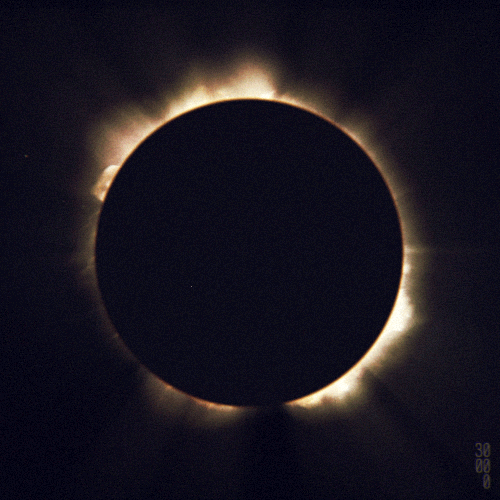#zuck's gonna own the algorithm now
Explore tagged Tumblr posts
Text
So, TikTok's back.

#tiktok#shou sold out i bet#zuck's gonna own the algorithm now#and it's gonna suck like fb and ig soon#*SIGH*#this would be funny if it weren't REAL#why is america the way that it is#oh right unchecked assholery#and the fact that we're run by out of touch old fucks#see those meta shares they've been buying?!#tiktok ban
1 note
·
View note
Text
“The Computer is like a Bicycle for our Minds.”
These are the words spoken by the father of the modern computer (the thing in your hand, or maybe your pants ^.^ ) Steve Jobs. Mr. Jobs was known in life for an unparalleled ability to discern the essential qualities of ideas and distill them to their purest forms, and I think no other quote captures the fundamental nature of computers as well as the words of the Apple founder. Just as a bicycle can augment our physical movement, making us quicker and more capable, computers have the amazing ability to enhance our mental prowess.
Our minds: the complex thoughts, emotions, memories, and the consciousness of these inner nebulae are what make us human.
Computers unlock the potential of our minds, they make us more human.


‘The Countess of Lovelace’
Defined by the illustrious Merriam Webster, a computer is: one that computes; specifically : a programmable usually electronic device that can store, retrieve, and process data. A computer does not just include the modern conception of the electrical machine, but any machine that ‘determines’.
The earliest computer recorded in human history is the abacus. The abacus illustrates the most mundane way in which we recognize our intellectual cousins, and also their most primitive purpose: calculation. It was invented for complex decisions that arise in trade.
All computers, even those as simple as an abacus, allow us to abstract the difficult process of data calculation and recall from problems and allow us to focus on the MEANING of that data, i.e. how much I profited after expenses is the most important part of how much I sold 1400 cattle for.
So that’s the first part of Merriam’s definition, but what about programming? Programs are just instructions, they tell a computer how to do something. This ‘something’ can be far more complicated than counting cattle. The first programs in history were written by This Badass Lady for the first general purpose computer, the analytical engine (Zuck has her to thank for Algorithms ^.^).
Because of programs and algorithms (shh.. I know they are the same thing), these days we use computers for much more than just math problems, Computers help us sense and manipulate the world around us. The computational engines we employ today augment human perception. Computers allow you allow you to be places you can't, sense things you otherwise wouldn't be able to. We humble residents of earth have witnessed alien dawn on mars and sunsets on the moons of Jupiter via unmanned space robots. I bet you can pull up Snapchat right now and feel like you are watching the Olympics from backstage. We can see the same event from literally millions of different perspectives, a great example of which was the recent solar eclipse.

‘Touch’
Another way computers enhance our human tendencies is the enabling of massive human networks. Although we transcended physical proximity in communication with the invention of the telegraph, We have never before experienced such an all-encompassing, ever-present, and alive a network as the Internet. (Noticed, I capitalized it there?). The Internet really is a proper noun, a singular entity created from the fusion of networks. Computer networks allow us to communicate and record at an unprecedented rate, If history was changed by the printing press, then the Internet has changed humanity. The Internet is a vast repository of human knowledge and creativity. We have access to not just our own ideas but those of everyone else,
Computing is about ideas. It’s not limited to binary math algorithms, those are just convenient logical structures easily represented mapping electrons in silicon grids. Computers don’t just enhance human brains propensity for arithmetic and logic but also for artistic expression and emotion. We have successfully augmented human connection. Every time you crack a smile seeing your grandma’s latest photo album of Facebook, get inspired by your favorite Youtuber, or share passion with like-minded folks, you are using a computer to do something so very innate and primal to us: reach out and touch someone.

Closing
I’m not gonna lie, this is a thousand word essay on a topic many people find to be about as exciting as sawdust, so I want to thank you if you read all the way here. The main point I wanted to get across is: it is imperative to our future to understand our relationship with our mind-machines. I want you to be expressive, be yourself, be brave and bold and everything that you are, but also be responsible and knowledgeable in how this affects you, influences your ideas, and shapes your world. The future of the computer is a further diaspora and dissemination, an application to even the most mundane. Infinite connectivity.
Remember: we are all watching each other now.
We can look at that statement in two ways, either there is some Kafkaesque force (they don’t want you to...): everyone watching has malicious, judging natures. Or we can frame it as all having each other's backs. And we can really believe it, see it now, it's frighteningly obvious.
We can be there for each other, despite geographic, cultural, and socioeconomic boundaries. Our planet is but a tiny blue speck in an unfathomable sea of void. We can choose good, we can choose each other, we can choose humanity.
‘All revolutions happen the same way: Bit by Bit‘
-anon
0 notes